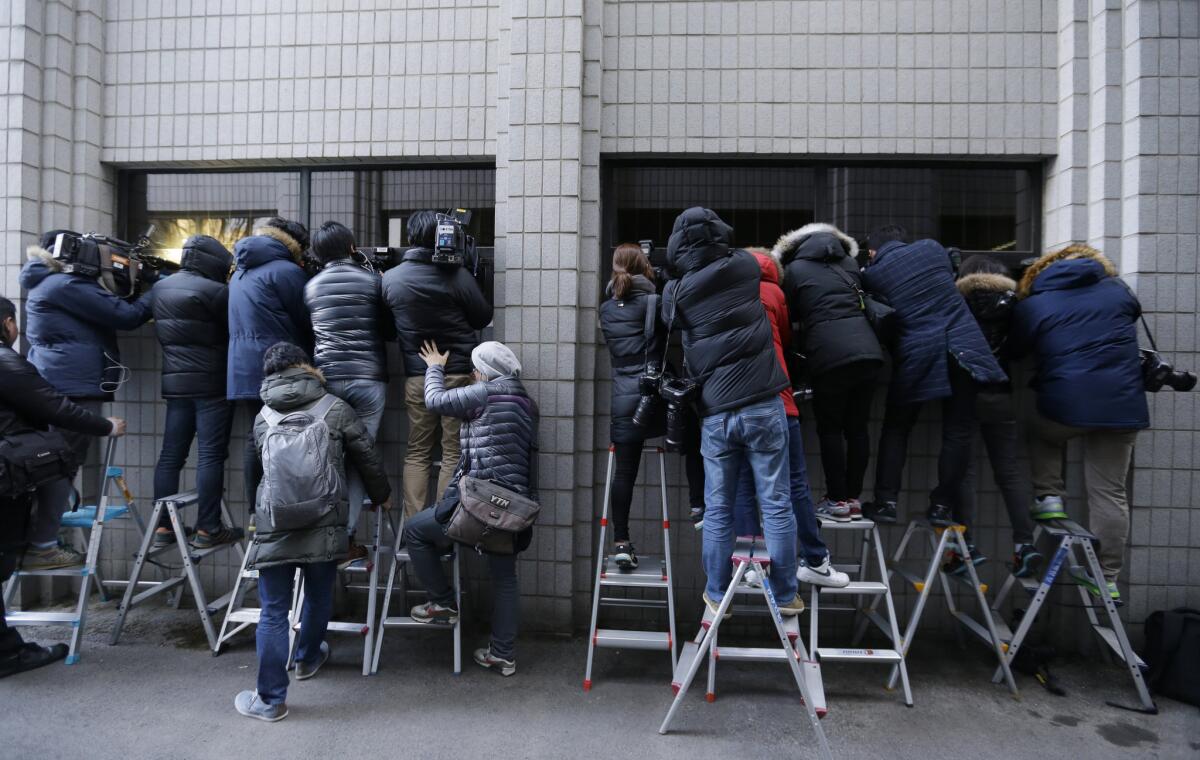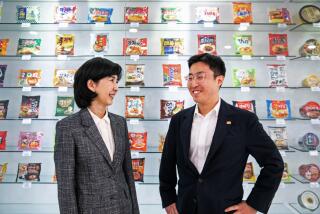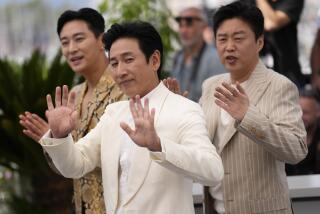Ex-Korean Air executive sentenced to prison in ‘nut rage’ case

A former Korean Air vice president was sentenced to one year in prison on Thursday for ordering a plane in New York to return to its gate after becoming furious over how her macadamia nuts were served.
Heather Cho, who also goes by her Korean name of Cho Hyun-ah, ordered the Dec. 5 Seoul-bound flight at John F. Kennedy International Airport to let off the flight’s purser, whom she said had served her macadamia nuts in a sealed package instead of on a plate. Cho was seated in first class and argued that serving the nuts in their package was a violation of company service practices.
Cho was also charged with assaulting the purser. She pleaded not guilty to all charges.
The case was dubbed “nut rage” in South Korea, and sparked an angry backlash over the sometimes unruly and entitled behavior of the few families that run the conglomerates that dominate the national economy.
Prosecutors had been seeking a three-year jail term for Cho for violating aviation law, which carries a maximum penalty of 10 years of incarceration. Thursday’s ruling was made at a district court, and Cho and her lawyers can appeal the sentence. After the hearing, Cho’s lead lawyer told reporters that no decision had yet been made about whether to appeal.
In his ruling, Judge Oh Seong-woo reportedly voiced skepticism about whether Cho was genuinely remorseful for her actions. “The so-called ‘nut rage’ case trampled on the integrity of humanity,” Oh added, according to Yonhap News Agency.
Cho is the daughter of Korean Air Chairman Cho Yang-ho, who has apologized for his daughter’s actions and removed her from her position at the company.
After the “nut rage” incident became international news, Heather Cho appeared in front of dozens of reporters at a police station in December, dressed in black. She hung her head while bowing deeply at the waist, a customary gesture of contrition in this country.
The scandal worsened when allegations arose that Cho had ordered Korean Air employees to destroy evidence as part of a cover-up.
A small number of family-run conglomerates led South Korea’s speedy development in the 20th century and still account for a large portion of the country’s economic activity. For years, critics have accused the companies of wielding too much economic clout, and of bullying the less powerful, then being treated leniently by regulators and law enforcement.
In one well-known example of conglomerate brass receiving favorable treatment, Samsung Electronics Chairman Lee Kun-hee in 2009 received a presidential pardon after being convicted of embezzlement and tax evasion. The government at the time argued that Lee was too important to the economy to be kept behind bars.
Borowiec is a special correspondent.
More to Read
Start your day right
Sign up for Essential California for news, features and recommendations from the L.A. Times and beyond in your inbox six days a week.
You may occasionally receive promotional content from the Los Angeles Times.






